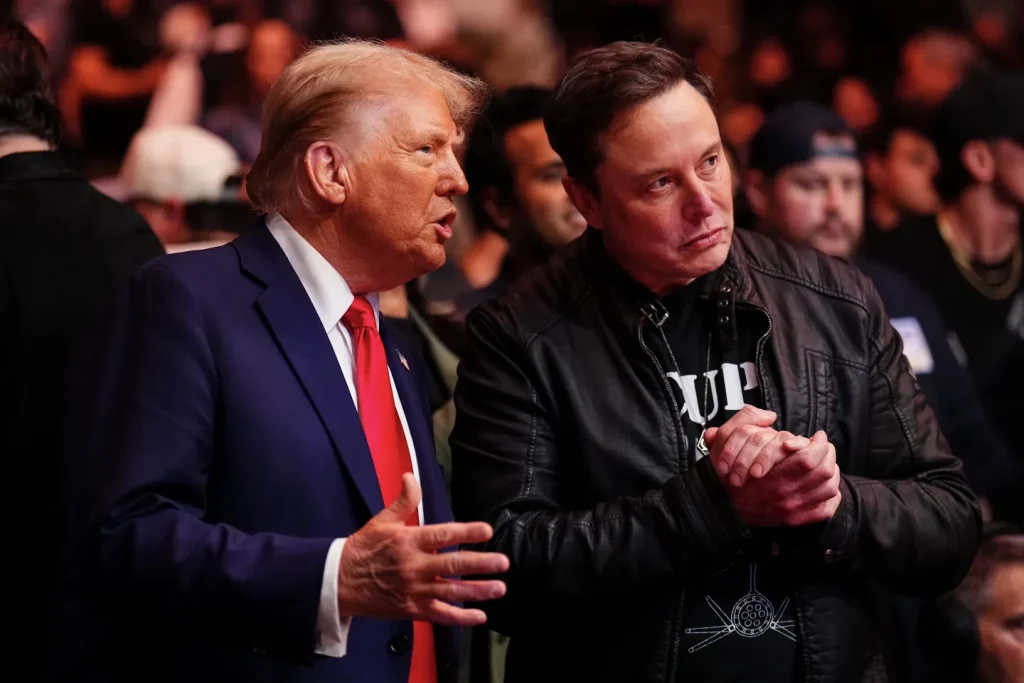
From Bromance to Break-Up — What Went Wrong?
Once hailed as the tech titan and the political disruptor reshaping America’s future, Elon Musk and Donald Trump seemed like a natural alliance. They were both billionaires, anti-establishment icons, and media magnets. Their occasional mutual praise made headlines, their comments sent shockwaves, and their online followings worshipped them as modern-day gladiators of innovation and rebellion.
But today, that alliance appears fractured. Cold tweets. Public jabs. Behind-the-scenes tension. So what’s really behind the Trump-Musk break-up? Is it just political theater, or is something deeper brewing under the surface?
Let’s dive deep into the timeline, the turning points, the egos, and the power plays that led to one of America’s most unexpected feuds in recent memory.
The Rise of an Unlikely Friendship
1 Mutual Admiration in the Trump Era
Back in 2016, Elon Musk wasn’t an obvious Trump supporter. In fact, he criticized Trump’s immigration stance and climate policy. Yet surprisingly, Musk accepted a role on Trump’s advisory council after the election — signaling an attempt to influence from within.
Trump, known for his harsh stance on big tech and Silicon Valley “elites,” seemed to respect Musk’s entrepreneurial achievements. He frequently praised SpaceX and Tesla’s innovations, citing them as American success stories.
They didn’t always agree — but their public respect was hard to ignore.
Tensions Begin to Surface
1 Elon Musk Leaves Trump’s Advisory Council
The first major rift came in 2017. After Trump withdrew the U.S. from the Paris Climate Accord, Musk publicly distanced himself from the administration, resigning from the advisory council.
His tweet said it all:
“Climate change is real. Leaving Paris is not good for America or the world.”
Trump reportedly dismissed Musk’s decision as posturing, and from that point on, the relationship became increasingly strained — but still polite in public.
2 Ideological Differences Grow
Musk’s growing interest in environmental policies, AI regulation, and universal basic income started clashing with Trump’s focus on deregulation, fossil fuels, and traditional conservative economics.
Behind the scenes, insiders reported that Musk began viewing Trump’s leadership style as erratic, while Trump’s allies began questioning Musk’s loyalty.
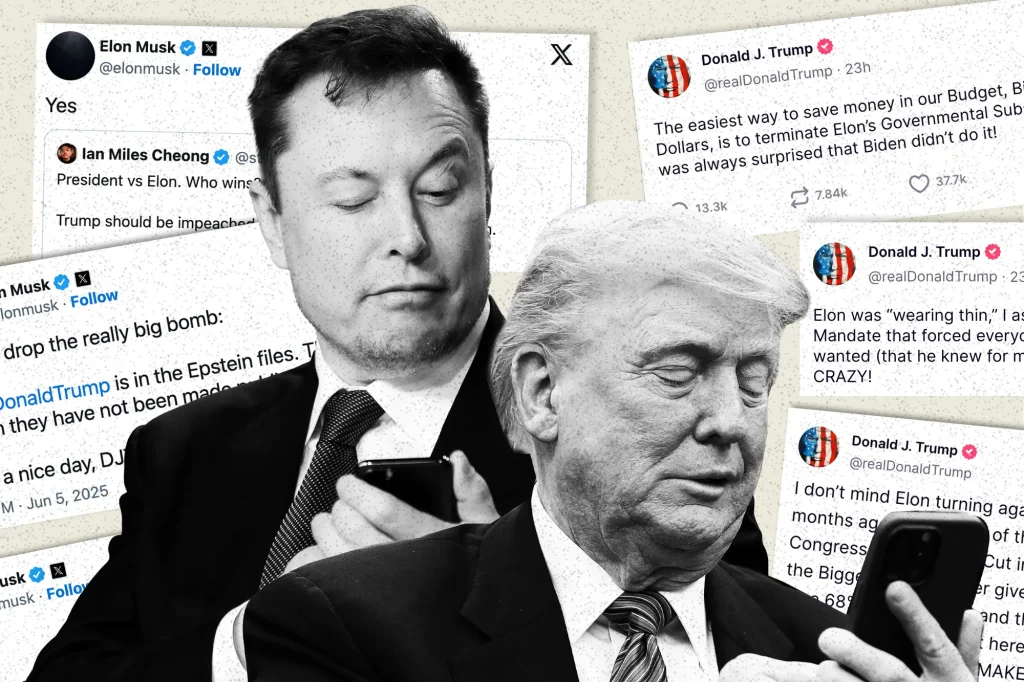
The Twitter Tango — Public Jabs Begin
1 Musk’s New Platform, Trump’s Old Obsession
After Elon Musk bought Twitter (renamed X), many assumed he’d reinstate Trump’s banned account and welcome him back with open arms.
He did… but Trump didn’t return. Instead, Trump stuck with his own platform, Truth Social, signaling a subtle rejection.
That didn’t sit well with Musk, who reportedly expected Trump’s return to boost platform metrics. Musk had taken a gamble on free speech and expected loyalty in return.
2 Subtweets and Sarcasm
It didn’t take long for both men to take subtle (and not-so-subtle) jabs at each other.
- Musk mocked “career politicians.”
- Trump lashed out on Truth Social, calling Musk “another BS artist.”
- Musk replied, “It’s time for Trump to hang up his hat.”
And just like that, the cold war became hot.
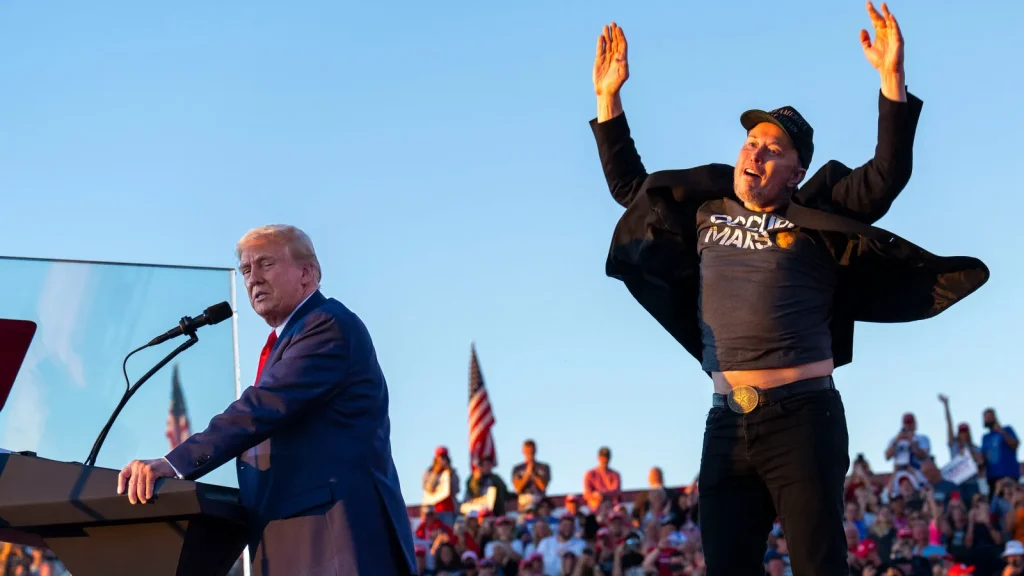
Political Clashes in the 2024 Election Cycle
1 Elon’s Political Evolution
Elon Musk has never been easily boxed into traditional party lines. While he previously leaned liberal on certain issues, in 2022 and 2023, he increasingly aligned with right-wing talking points — criticizing “wokeism,” DEI initiatives, and government overreach.
Yet his support for Republican candidates other than Trump signaled a clear divide.
When asked about the 2024 election, Musk hinted he wouldn’t support Trump, preferring “someone sensible and centrist.”
That “someone” was often interpreted as Ron DeSantis — a major blow to Trump’s ego.
2 Trump’s Counteroffensive
Trump, a master at branding enemies, didn’t take the snub lightly. On Truth Social, he lashed out:
“When Elon came begging me for help with subsidies, I gave him billions. Now he acts holier than thou.”
The accusation? That Musk had benefited from federal programs while biting the hand that fed him.
Musk responded coolly:
“Tesla has received less government support than almost any big automaker.”
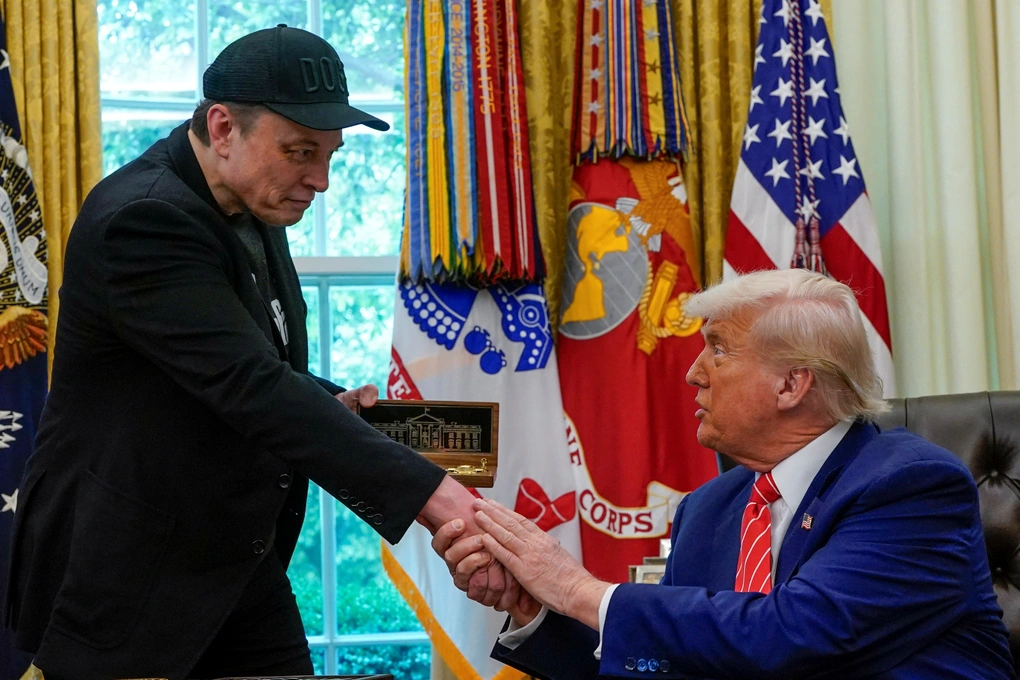
Business vs Politics — Clash of Titans
1 Competing Empires
Trump and Musk may not be in the same industries — one deals in politics and branding, the other in technology and innovation — but both are in the business of influence.
Trump’s empire thrives on loyalty and dominance. Musk thrives on innovation and disruption.
In many ways, both are fighting to be the defining voice of modern conservatism. That battle doesn’t leave room for two kings.
2 Control of the Conversation
Elon Musk owns one of the most powerful platforms for political discourse — Twitter (X). Trump owns one of the loudest megaphones — his base.
Control over narrative is everything in 2024, and both men want it.
That’s why even small slights turn into massive drama. Both understand the stakes.
Who’s Winning the Feud?
1 Social Media Metrics
On X, Elon Musk reigns. His tweets shape news cycles. His followers engage at unprecedented levels.
Trump, meanwhile, has seen declining numbers on Truth Social — a platform that’s failed to reach mass appeal outside his loyalists.
2 Political Leverage
Trump still dominates Republican primaries and polls. His political grip remains unshaken despite legal battles and controversies.
Musk, while influential, cannot match Trump’s hold on working-class conservatives — at least not yet.
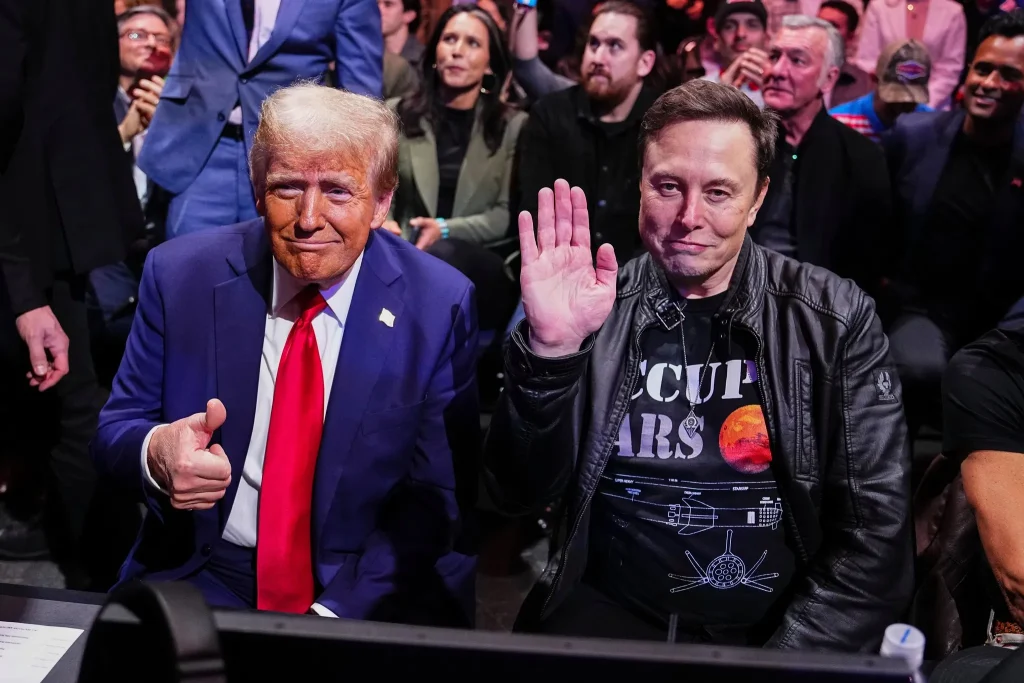
Hidden Factors You Didn’t Know
1 Business Interests Collide
Musk’s companies — especially Tesla — benefit from globalism, green energy policies, and tech regulation.
Trump’s “America First” policies run counter to those interests. Tariffs on China, opposition to EV subsidies, and climate denialism aren’t good for Tesla or SpaceX.
That’s more than personal. That’s financial.
2 Musk’s Vision of the Future
Musk dreams of a multi-planet civilization, AI regulation, and an ultra-libertarian digital future.
Trump dreams of returning to the White House, restoring American manufacturing, and dominating media cycles.
These aren’t just different priorities — they’re different universes.
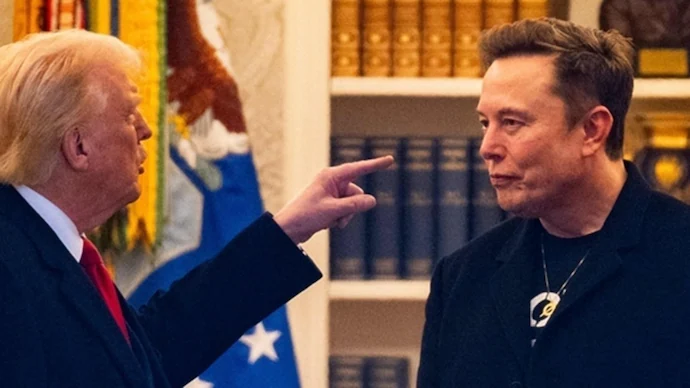
Is a Reconciliation Possible?
1 Stranger Alliances Have Formed
Could Trump and Musk bury the hatchet? Possibly. Both are pragmatic. Both understand the power of public narrative.
But with egos this large and ambitions this conflicting, reconciliation would require a major realignment.
2 The Wildcard Factor
If Trump wins the 2024 election — or if Musk throws his weight behind a third-party candidate — the entire landscape could shift.
Right now, the divide works for both. It keeps them in the headlines. It creates engagement. It draws battle lines.
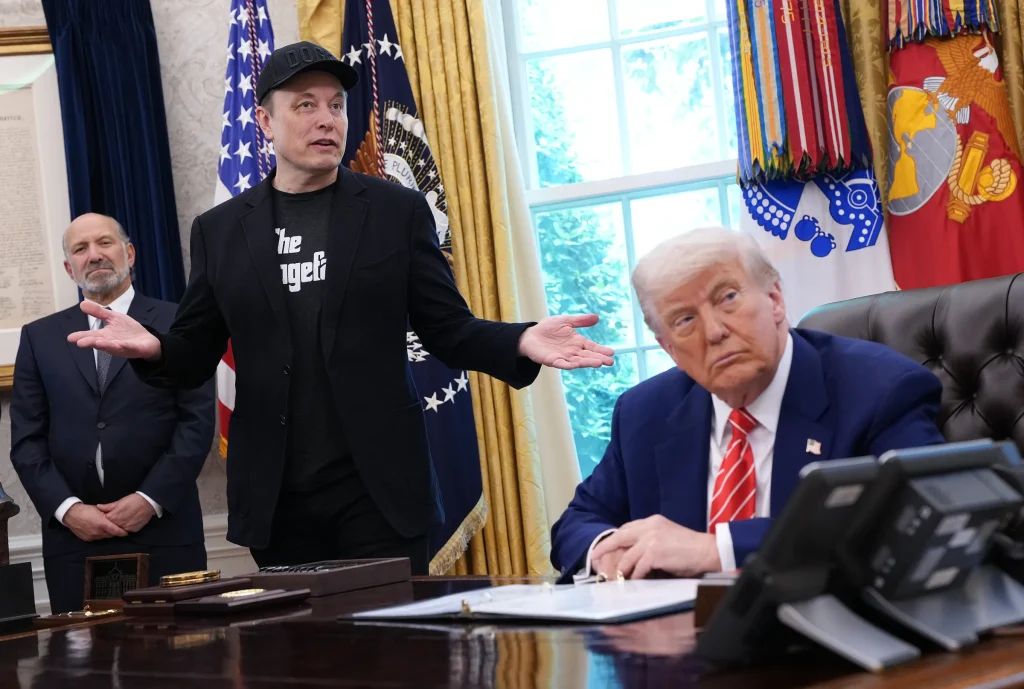
Conclusion: What’s Really Behind the Trump-Musk Break-Up?
At the heart of this drama is not just political difference or bruised ego — it’s a battle for the soul of the American right.
Trump represents tradition, nationalism, and firebrand politics.
Musk represents the future, innovation, and techno-libertarianism.
Both men want to lead — but in fundamentally different directions.
The Trump-Musk break-up isn’t just a feud. It’s a reflection of a shifting America, caught between the chaos of populism and the promise of innovation.
Whether they ever reunite or continue to clash, one thing is certain:
The power struggle between Donald Trump and Elon Musk will shape the headlines — and maybe even the next era of American politics.
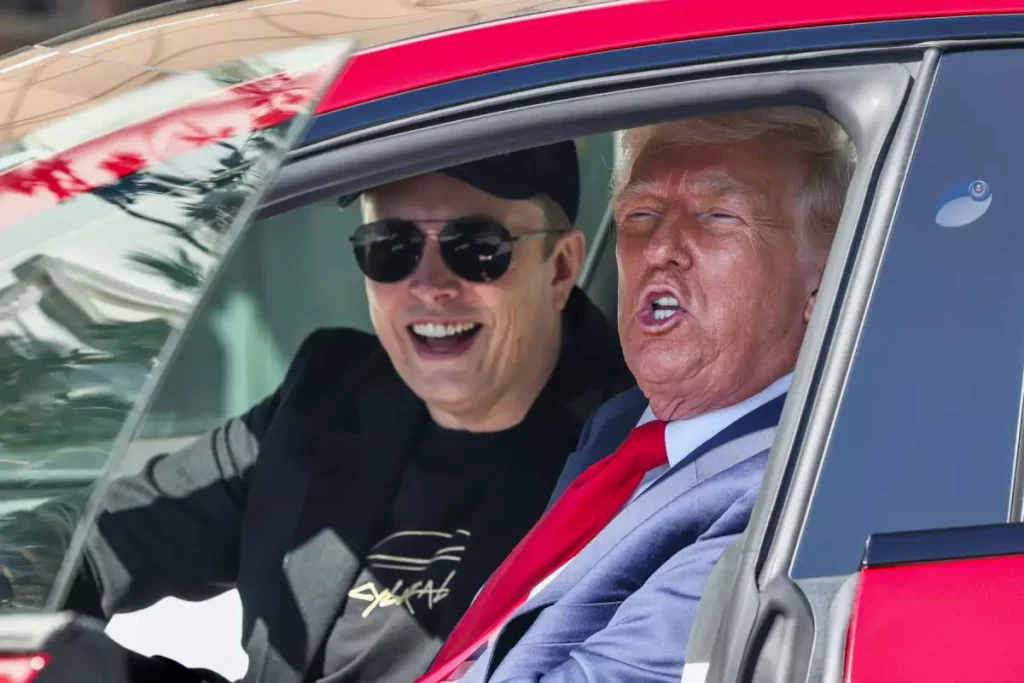
FAQs About Trump and Musk’s Relationship
Q1: Did Elon Musk support Trump in 2016 or 2020?
Not publicly. Musk remained mostly neutral but did join Trump’s advisory council briefly in 2017.
Q2: Why did Trump call Elon Musk a “BS artist”?
Trump was reportedly upset after Musk publicly criticized him and supported other Republican candidates.
Q3: Are Elon Musk and Donald Trump still in contact?
As of now, no public statements suggest ongoing communication.
Q4: Does Elon Musk support any political party?
Musk has shifted from left-leaning views to endorsing more centrist and right-leaning candidates, though he avoids full allegiance.
Q5: Will Musk support Trump in 2024?
Unlikely, based on Musk’s statements favoring alternative Republican or centrist candidates.


